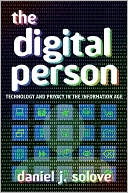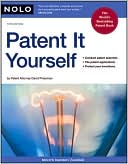The Digital Person: Technology and Privacy in the Information Age
Search in google:
Seven days a week, twenty-four hours a day, electronic databases are compiling information about you. As you surf the Internet, an unprecedented amount of your personal information is being recorded and preserved forever in the digital minds of computers. For each individual, these databases create a profile of activities, interests, and preferences used to investigate backgrounds, check credit, market products, and make a wide variety of decisions affecting our lives. The creation and use of these databases which Daniel J. Solove calls digital dossiers has thus far gone largely unchecked. In this startling account of new technologies for gathering and using personal data, Solove explains why digital dossiers pose a grave threat to our privacy. Digital dossiers impact many aspects of our lives. For example, they increase our vulnerability to identity theft, a serious crime that has been escalating at an alarming rate. Moreover, since September 11th, the government has been tapping into vast stores of information collected by businesses and using it to profile people for criminal or terrorist activity. THE DIGITAL PERSON not only explores these problems, but provides a compelling account of how we can respond to them. Using a wide variety of sources, including history, philosophy, and literature, Solove sets forth a new understanding of what privacy is, one that is appropriate for the new challenges of the Information Age. Solove recommends how the law can be reformed to simultaneously protect our privacy and allow us to enjoy the benefits of our increasingly digital world. Daniel J. Solove is associate professor of law at the George Washington University Law School. He is the author (with Marc Rotenberg) of INFORMATION PRIVACY LAW.
1Introduction12The rise of the digital dossier133Kafka and Orwell : reconceptualizing information privacy274The problems of information privacy law565The limits of market-based solutions766Architecture and the protection of privacy937The problem of public records1278Access and aggregation : rethinking privacy and transparency1409Government information gathering16510The fourth amendment, records, and privacy18811Reconstructing the architecture21012Conclusion223








